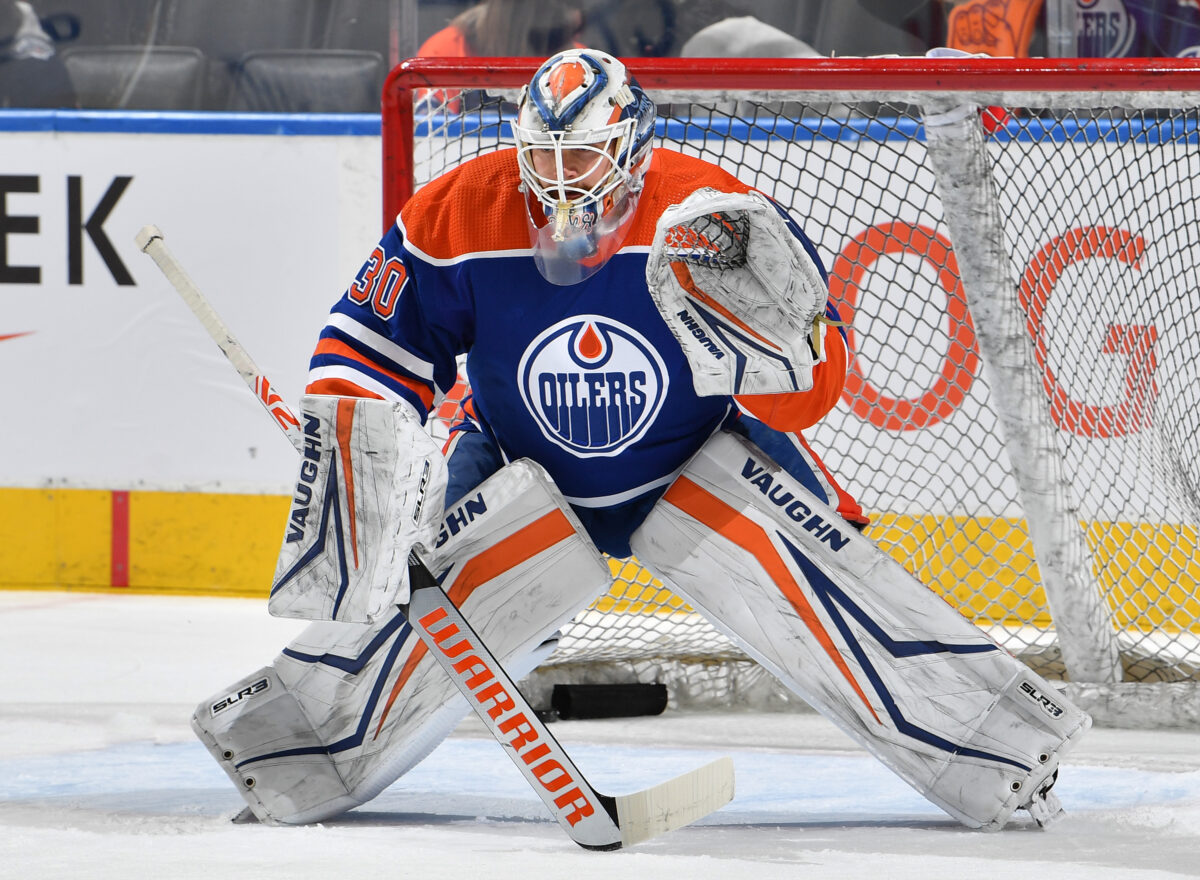On Tuesday, Sportsnet Central invited Daily Faceoff’s Frank Seravalli into a long conversation. Here’s a look at what Seravalli had to say. The hockey analyst worked with Sports Central to help make sense of what has been an intense and evenly-matched series between the Vancouver Canucks and the Edmonton Oilers. Answering questions put forward by the Sportsnet crew, Seravalli dissected the series’ critical decisions and player performances.
These included goaltending dilemmas, strategic moves, and individual player challenges that shaped the playoff landscape. In the video below, Seravalli shares his insights by answering four questions about this intense series.
Topic 1: Canucks’ Goaltending Situation
Question One to Seravalli: The Canucks are facing a goalie dilemma with Thatcher Demko nearing return. What’s the latest on his status, and how does this affect their decision-making?
Answer: Demko has been ramping up his activity, taking shots for three consecutive days. Head coach Rick Tocchet has been prepping him since his injury, emphasizing the need to stay prepared. However, the emergence of Arturs Silovs as a reliable option complicates matters. Silovs’ consistency and potential for the future present a “good problem” for the Canucks. The crucial decision might come if the Canucks face elimination in Game 5. Stick with the goaltender who got them there, or turn to Demko to extend the season potentially?
Related: Canucks Let Golden Opportunity Slip Away vs. Oilers in Game 4
Seravalli highlighted Silovs’ excellence and reliability during the pressure of playoff hockey. Despite being a young goaltender, he has shown no signs of wavering. As a result, he’s earned the trust of the Canucks this postseason and into the future. He’s positioned himself as a reliable option for the team long-term, working in tandem with Demko. Seravalli emphasized Silovs’ contribution to the team and underscored the confidence Vancouver can place in him moving forward.
Topic 2: Oilers’ Goaltending Decision
Question Two to Seravalli: Kris Knoblauch’s decision to start Calvin Pickard in Game 4 raised eyebrows. What are your thoughts on this bold move?
Answer: Knoblauch’s decision to start Pickard was gutsy, considering Pickard’s limited playoff experience and journeyman status. However, it was a calculated risk, given Edmonton’s defensive ability this postseason. The Oilers have limited scoring chances, lessening the pressure on goaltending and making it a feasible gamble. It was a courageous move by Knoblauch, aligning with Edmonton’s defensive strengths.

Seravalli shared that Pickard, a 32-year-old goaltender, hasn’t had many opportunities in NHL playoff games. He hasn’t even consistently been a starting goaltender in the NHL or American Hockey League (AHL) playoffs. That made his sudden appearance in a crucial game unexpected. Seravalli emphasizes the rarity of Pickard’s playoff appearances and the pressure associated with being thrust into such a pivotal role for the Oilers.
Topic 3: Elias Pettersson’s Performance
Question Three to Seravalli: Elias Pettersson has been relatively quiet in the series, with just one point. What adjustments should he make to elevate his game?
Answer: Pettersson must be more assertive, avoiding playing on the perimeter and ensuring he controls the puck. His tendency to turn over possession, especially when shying away from contact, is problematic. There’s a debate in Vancouver about whether he should play with more skilled linemates or drive his own line. Regardless, he needs to step up. Tocchet’s emphasis on taking the initiative echoes here; Pettersson needs to be proactive to ignite the Canucks’ offence.
Related: Celebrating Calvin Pickard’s Remarkable Season With the Oilers
Seravalli identified several issues with Pettersson’s performance in the series. He noted that the Swedish forward has just one point to show for his efforts. One key issue highlighted is Pettersson’s tendency to play on the perimeter rather than getting involved in the action closer to the net. Additionally, Seravalli pointed out instances where he has unnecessarily turned over possession of the puck, potentially due to a desire to avoid physical contact. These factors are contributing to Pettersson’s struggles to generate offence in the series.
Topic 4: Oilers’ Offensive Strategy
Question Four to Seravalli: The Oilers have the luxury of pairing Connor McDavid and Leon Draisaitl together. How do you assess this strategy and its impact on the series?
Answer: Edmonton’s ability to deploy McDavid and Draisaitl is a potent weapon, offering versatility and firepower. It’s akin to an “emergency option” that can create havoc for opponents. Their synergy on the power play is remarkable, complemented by the impressive performance of Edmonton’s defensive pairings. While McDavid has had quieter moments this season, Draisaitl has been stellar.
Seravalli attributed the Oilers’ power to McDavid and Draisaitl’s exceptional performances. He described them as among the best performers in playoff history, citing their impressive point production and impact on the ice. Draisaitl has been particularly stellar, with eight goals in nine playoff games.
Additionally, he mentioned the cohesion of Edmonton’s defensive pairings, with players like Evan Bouchard and Darnell Nurse stepping up to support McDavid and Draisaitl’s offensive efforts. Overall, Seravalli portrayed the Oilers as a formidable team driven by their superstar talent and supported by solid defensive play.
The Bottom Line in the Oilers and Canucks Showdown
The bottom line in this excellent series is that two evenly-matched teams are going at it, each trying to establish dominance. So far, the series is even at two games apiece. The team that can establish its game has the best chance of winning the series and emerging as Canada’s hope in the Stanley Cup Playoffs.
